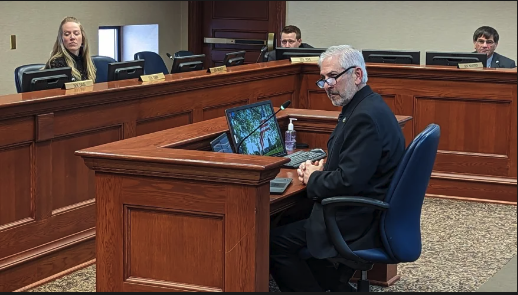South Dakota Cannabis News Recap 3/2/23
February 28 – Senate Bill 1 passes the House Health and Human Services Committee
On Tuesday, February 28th, the House Health and Human Services Committee voted 8-5 to pass Senate Bill 1. Senate Bill 1 would expand the list of qualifying conditions for medical cannabis in South Dakota to include cancer, epilepsy, MS, ALS, PTSD, Crohn’s Disease, AIDS, and HIV.
The proponents who testified on behalf of SB 1 were Representative Ernie Otten, CIASD lobbyist Jeremiah Murphy, Jamie Giedd from Rapid City, Becky Letsche from Madison, and Clint Wood from Vermillion. SDBML would like to especially thank Jamie, Becky, and Clint for their powerful testimonies.
Among those who testified against SB 1 was Protecting South Dakota Kids spokesman Jim Kinyon who disingenuously claimed that he was there to defend the will of the people even though the drafters of IM 26 fully supported the legislation.
SB 1 will now head to the House floor.
KOTA: PTSD might qualify for medical marijuana in South Dakota
February 22 – Two bills that would have negatively impacted the medical cannabis program suffered major setbacks.
On Wednesday, February 22nd, the Senate Health and Human Services Committee voted 4-1 to reject HB 1129 and HB 1172. Both bills would have placed additional regulations on medical cannabis card pop-up clinics around South Dakota.
Jeremiah Murphy, a lobbyist for the Cannabis Industry Association of South Dakota, testified against both bills while South Dakota sheriffs and police groups testified in support.
Senator Erin Tobin, chair of the Medical Marijuana Oversight Committee and the Senate Health and Human Services Committee, stated that in order to have a conversation about banning pop-up clinics around the state, the South Dakota Department of Health, which operates the medical cannabis program, must be present. However, Sen. Tobin stated that the Oversight Committee will be looking further into medical cannabis pop-up clinics going forward.
SD State Rep. Fred Deutsch, a fierce opponent of cannabis reform who has worked for years to criminalize medical cannabis patients, testifies in Pierre on February 22nd.
February 7 – The South Dakota Legislature proposes bills to weaken South Dakota’s medical cannabis law
Multiple bills have been brought forward during this year’s legislative session in an attempt to limit South Dakota’s medical cannabis patient program. Two of the most notable ones are HB 1129 and HB 1172.
HB 1129 would establish unnecessary provisions related to the medical cannabis law, making it much harder for patients to receive a medical cannabis card recommendation. Read the text of the bill here.
HB 1172 would place unnecessary restrictions on medical practitioners who issue medical cannabis recommendations to patients. Read the text of the bill here.
Both bills are sponsored by Representative Fred Deutsch who was the treasurer for Protecting South Dakota’s Kids, the opposition campaign to Measure 27 (the 2022 legalization initiative). Deutsch has stated that HB 1172 is aimed at restricting pop-up clinics: “There are no regulations on clinic locations,” Rep. Deutsch said. “This would provide some modicum of regulation.”
Jeremiah Murphy, a lobbyist for the medical marijuana industry, stated: “The black market is where most marijuana is sold. The more you put people in front of doctors, the better.”
Rep. Fred Deutsch is also the prime sponsor of HB 1053 – a bill to prohibit pregnant or breastfeeding women from obtaining a medical cannabis patient card. This bill has received an overwhelming amount of support from legislators.
KEVN: “South Dakota lawmakers tighten medical marijuana laws”
KEVN: “South Dakota Legislature poised to bar pregnant women from getting medical marijuana”
February 6 – Federal court rules that gun ban for marijuana users is unconstitutional
On February 3rd, the U.S. District Court for the Western District of Oklahoma ruled in favor of a man who was charged in Oklahoma in 2022 after police found marijuana and a gun in his vehicle. Judge Patrick Wyrick argued that the statute banning “unlawful” users of cannabis from possessing firearms violates the Second Amendment of the Constitution.
While the ruling in Oklahoma is one step towards progress for medical marijuana users who wish to obtain a firearm, the fight is not over. Experts expect the U.S. Department of Justice to appeal the U.S. District Court’s decision.

